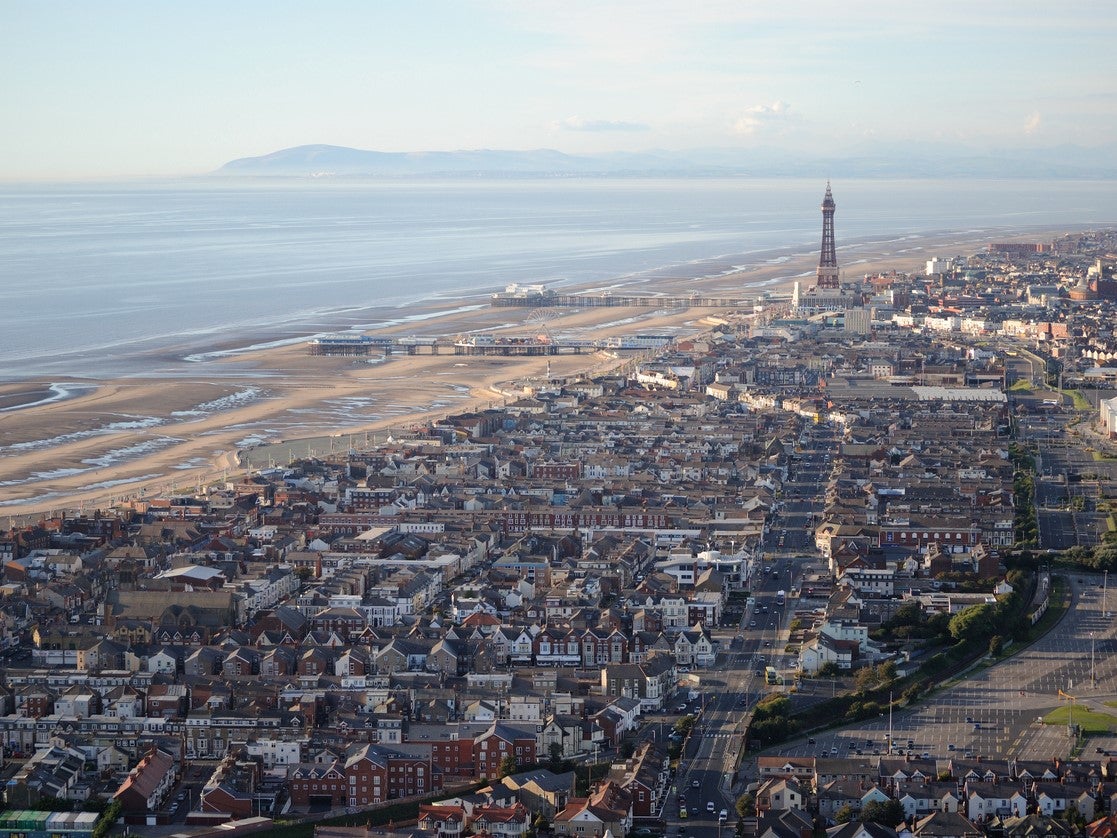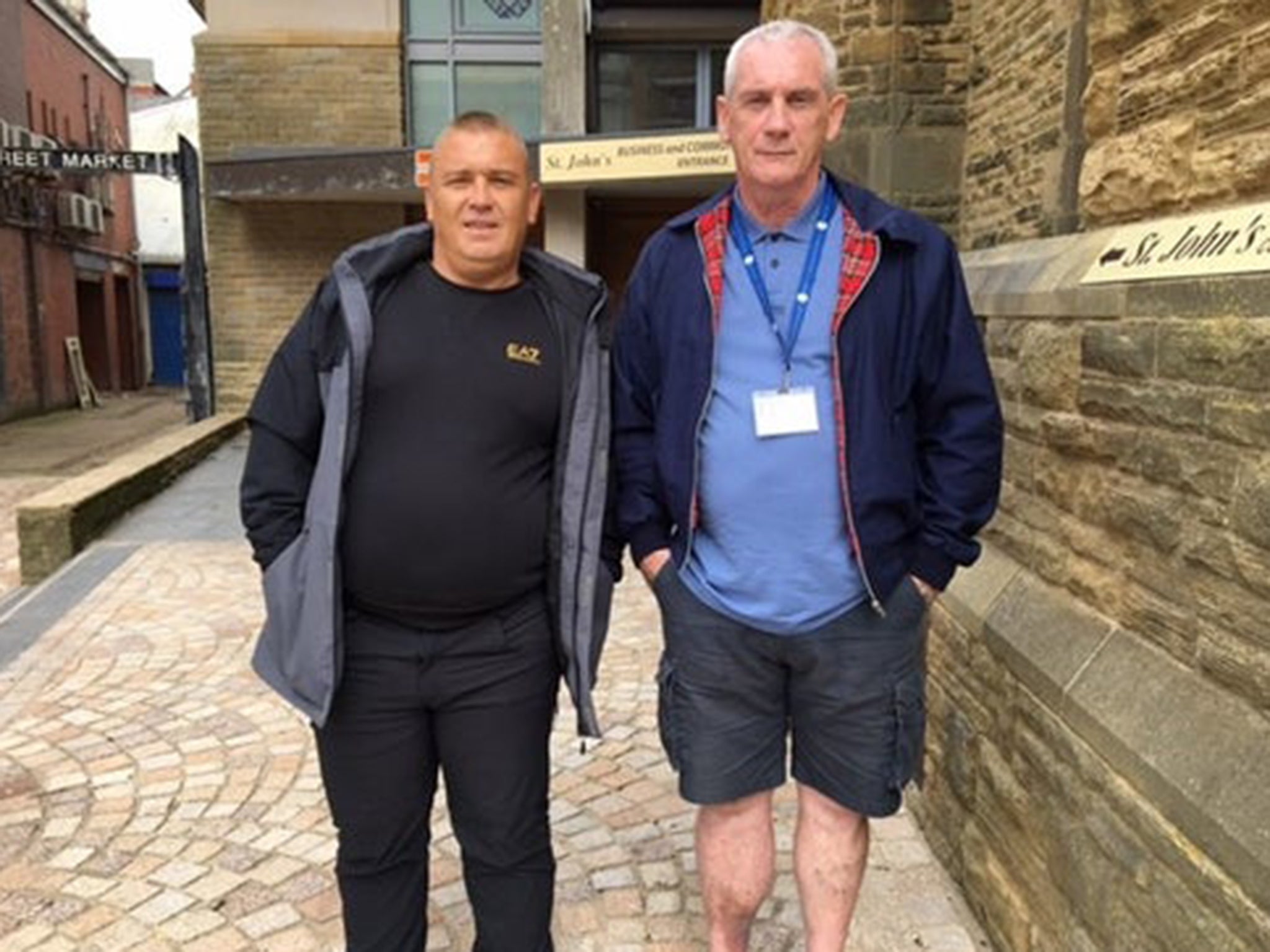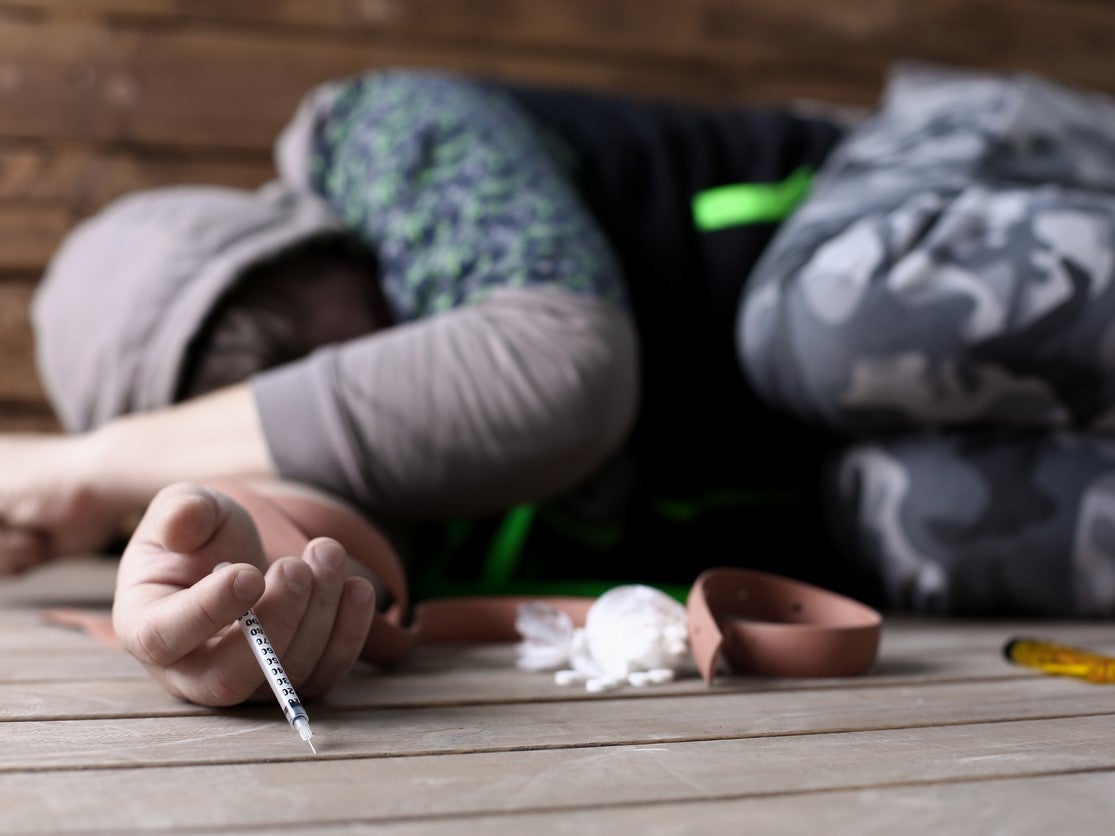‘I’m dying, I need help’: Inside the battle to turn around England’s drugs death capital
Blackpool has topped the country’s drug fatality rates for more than a decade. Now a dozen recovering addicts are part of a pilot programme to tackle a crisis that’s out of control, writes Colin Drury


Fifteen minutes after Steven Brown leaves his office in Blackpool, he is approached by one of the town’s estimated 2,400 heroin users. It is barely 11am. There is no small talk.
“Steve,” the man says. “I’m dying like this. I need help.”
Thus begins a day in the life on the front line of England’s most devastating – and longest running – drugs crisis.
Blackpool may be known for its piers, tower and illuminations; for sea, sand and Strictly. But, beneath the surface, this is a town where heroin and crack addiction run rampant.
Figures released this month show that, for the 11th year running, the Lancashire coastal resort was the drugs death capital of England and Wales. Forty-two people here died from drugs in 2020. The drug fatality rate is 31 per 100,000 people – four times the national average.
Now, a £4.95m pilot programme is being launched in an attempt to finally break this cycle.
Project Adder – funded by the Home Office but run by the local council, NHS and police force – is aiming to reduce deaths by targeting dealers more forcefully and breaking supply chains. Since launching in January, 45 arrests have been made and £40,000 worth of drugs seized.
But this three-year trial also comes with a unique initiative: a dozen reformed addicts – named the Lived Experience Team – are being deployed to get out into the community to find, engage with and help those most at risk of being lost to drugs.
Which is where Steven Brown and his daily walk around Blackpool comes in.
As a man who spent 20 years in and out of prison before getting clean in 2016, the 43-year-old is plugged into the intelligence as to where users congregate, and the new substance trends. He is able, so the theory goes, to reach out to addicts in a way that other professionals simply cannot. In one instance, after a user with a terminal illness stopped attending treatment sessions, Brown tracked him down to the toilet block where he had taken to living – and persuaded him to re-engage.
“They know I’ve been where they are so they trust me,” the father-of-one says today. “They know I don’t judge because I’ve been in their shoes. I’ve been the one injecting into my groin. I’ve had the abscesses on my legs. Half the users in this town – I’ve probably used with them at one time or another.”
As such, when that addict approached him this morning, Brown instinctively understood the importance of the moment. He knew that this sudden unsolicited plea for help had to be acted on fast.
“What you’ll get is an addict takes this decision to seek help and then they are given an appointment in two weeks time,” he explains. “It might as well be in two years. They don’t turn up because, in that time, they’re back injecting.”
The Lived Experience Team, however, moves more rapidly. Under Adder, the group shifts that user into priority appointments in a bid to take full advantage of these crucial hours. In this instance, Brown arranges to take the man to a mutual aid meeting that afternoon. From there, wraparound care – housing, treatment, mentorship – can all be made available.
Will he get clean? “That comes down to him,” comes the reply. “What we do is try and give the best chance of it happening.”

Project Adder – Addiction, Diversion, Disruption, Enforcement and Recovery – is being piloted in five different areas: Blackpool, Hastings, Middlesbrough, Norwich and Swansea Bay.
It is, Boris Johnson has said, a “new, targeted approach which will ramp up local enforcement, while at the same time diverting more people into recovery”.
Exactly why Blackpool itself struggles so badly with addiction comes down to multiple social and historic factors.
The town’s economic demise since its inter-war tourist heyday has resulted in huge levels of poverty. In 2019, it was ranked the most deprived area in the whole of England. Jobs tend to be low-skilled, poorly paid and – because of the resort’s reliance on visitors – seasonal. Educational attainment, too, is in crisis. Just 34 per cent of GCSE pupils achieve the government’s benchmark ‘attainment 8’ figure in the constituency of Blackpool South. The national average is 46.9 per cent.
Because the resort is home to high numbers of large, oft-empty properties – mainly one-time B&Bs – councils across the north have, over the years, moved their own vulnerable residents here. Significant numbers of addicts also tend to come of their own volition, often because they associate the place with childhood holidays.
Against this backdrop, few have any illusions that making Adder work will be anything other than a monumental challenge.
“The social ills in this town are such that regardless of what we do [in terms of intervention], there will still be ongoing issues way into the future,” says Jonny Hall, team leader with Adder’s adult service programme. All the same, he reckons, a huge difference can be made.
So far, 34 of the town’s most vulnerable addicts have been enrolled onto the new scheme. Each one will have intensive multi-agency support tailored around their needs. Complex and bureaucratic pathways to services such as housing, mental health counselling and finding work will be simplified, with each user assigned a single mentor as a one-stop touch-point. Where contact suddenly ceases, the Lived Experience Team will use their community links to find them and check in.
“We meet people where they’re at, so if it’s in crack dens or where they’re begging, that’s where we’ll go,” says Hall, who is himself a recovered addict. “We come from a perspective of being trauma-informed and understanding why they’re not engaging with mainstream treatment.”
While success will be difficult to measure – simply staying out of prison will be considered an achievement for some of the 34 – there is a sense that the ultimate target of lowering future death rates could be on course.
“That’s what we’re focused on,” says Hall. “Trying to keep people alive.”

One wider concern may be whether such intensive support is sustainable. It does not come cheap. The cost of providing similar levels of support for all the country’s 300,000 heroin and crack addicts would be astronomical. About £1.75bn over the next five years. to be exact, according to Professor Dame Carol Black.
The former Cambridge University college principal has spent the past 18 months working on a landmark independent review into curbing and treating drug misuse. Her conclusions – published in full last month – is that a “whole systems change” is needed. While her work does not refer to the pilot in Blackpool, her report advocates a similar approach across the country.
“You need to really improve the treatment and recovery system and by that I don’t just mean the clinical service,” she says today. “I mean mental health support, trauma support, housing, and the opportunity to get into work… You need that whole package to get people to stay in treatment and to come out the other end, able to contribute to society.”
While some may baulk at the sum required, Dame Carol insists it would be money well invested.
“The government spends £19.2bn a year on the drug dependency problem in terms of the criminal justice system, the prison system, health benefits, social care,” she says. “Drugs are responsible for 50 per cent of homicides and nearly 50 per cent of serious crime. They fill up a third of our prison places. You can’t [solve this] without some investment. I mean, £1.75bn? It has to be value for money.”
If it is a conclusion arrived at in the corridors of power and academia, it is also one that chimes back on the streets of Blackpool. Steven Brown, for one, agrees with it.
“Too many people are dying,” he says. “Here and everywhere. These are human beings. They haven’t chosen to be addicts. They need our help.”
Join our commenting forum
Join thought-provoking conversations, follow other Independent readers and see their replies
Comments
Bookmark popover
Removed from bookmarks